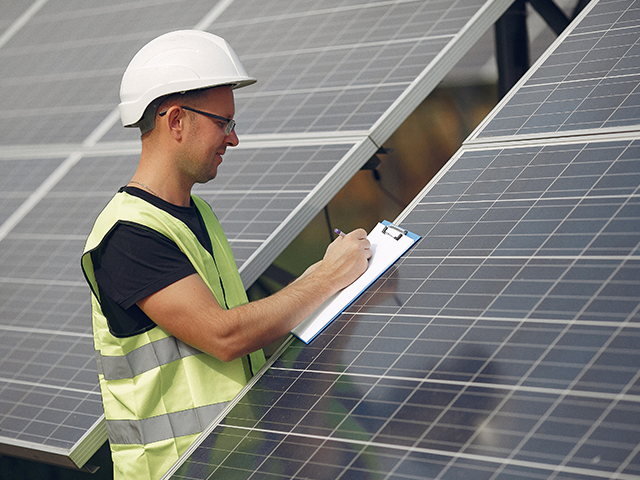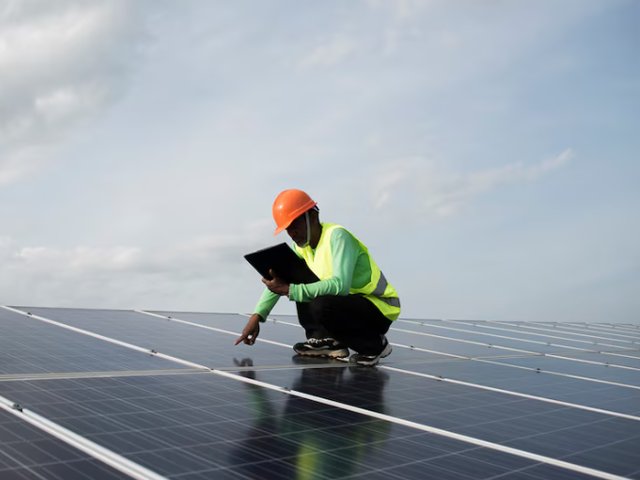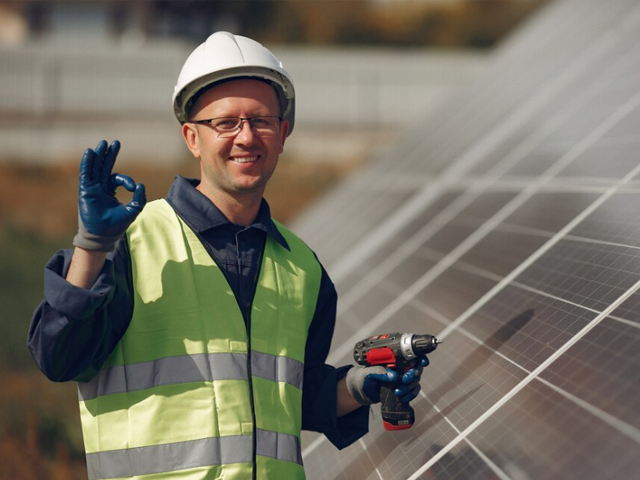Top Considerations When Buying Solar Panels in Arizona
With Arizona’s abundant sunshine and commitment to renewable energy, more homeowners are considering solar power as a viable option for reducing their electricity bills and their carbon footprint. Arizona is one of the sunniest states in the U.S., making it an ideal location for solar panel installations. However, purchasing solar panels is a significant investment, and there are several factors to keep in mind to ensure you make the best choice for your home and budget.
In this blog, we'll guide you through the top considerations to take into account when buying solar panels in Arizona. From understanding the state's solar incentives to evaluating panel efficiency and warranties, you'll find everything you need to make an informed decision.

1. Arizona’s Solar Incentives and Policies
One of the primary reasons Arizona residents are flocking to solar energy is the state’s attractive solar incentives. These incentives significantly reduce the upfront cost of installation, making solar panels more affordable for homeowners.
- Federal Solar Tax Credit: The federal government offers a solar tax credit (officially known as the Investment Tax Credit or ITC) that allows you to deduct a portion of the cost of installing a solar energy system from your federal taxes. Currently, the ITC is set at 30%, meaning you can reduce the cost of your system by nearly a third if you install solar panels before the tax credit phases out in the coming years.
- Arizona Solar Energy Credit: In addition to the federal credit, Arizona offers a state-specific incentive called the Arizona Solar Energy Credit, which allows residents to claim up to $1,000 off their state taxes for installing solar panels.
-
Net Metering: While Arizona's net metering policies have evolved
over the years, many utility companies still offer solar buyback programs,
where
excess energy produced by your solar system is sold back to the grid. Although
compensation rates have shifted to a "net billing" model, homeowners can still
benefit from lower utility bills by offsetting energy costs.
Understanding these incentives is crucial, as they can drastically reduce the financial burden of going solar.
2. Efficiency of Solar Panels
The efficiency of solar panels refers to how effectively they convert sunlight into usable electricity. In Arizona, where the sun is abundant, efficiency may not seem like a pressing concern, but it plays a crucial role in determining how much energy your system can generate.
- Monocrystalline vs. Polycrystalline Panels: Monocrystalline panels are known for their higher efficiency and sleek design but tend to be more expensive. Polycrystalline panels are more affordable but offer slightly lower efficiency. Depending on your roof space and budget, choosing the right panel type can make a significant difference in overall energy production.
- Consider Roof Space and Energy Needs: If your roof has limited space, opting for higher-efficiency panels may be the best solution to maximize energy output. On the other hand, if you have ample roof space, a system with slightly less efficient but more affordable panels may still generate enough electricity to meet your needs.


3. Cost and Financing Options
The cost of solar panels varies depending on the size of your system, the brand of panels you choose, and your specific installation requirements. While solar panels may seem like a large upfront investment, financing options and incentives make it much more affordable.
- Solar Loans: Many solar providers offer solar loans that allow you to finance your system with little to no money down. With this option, you can pay off the system over time while still benefiting from lower electricity bills.
- Leasing vs. Buying: Some companies offer solar leasing programs where you can install solar panels with no upfront costs. However, leasing may not allow you to take advantage of tax credits or increase the value of your home, which is why many homeowners prefer purchasing their system outright.
- Return on Investment (ROI): Solar panels typically pay for themselves within 6-10 years, depending on your energy consumption and system size. Considering Arizona’s high electricity rates, investing in solar panels offers a long-term ROI through significant energy savings.
4. Durability and Warranties
Solar panels are designed to last for decades, with most systems having a lifespan of 25-30 years. However, Arizona’s harsh climate, with its extreme heat and occasional monsoon storms, can affect the longevity of your system. That’s why it’s essential to consider panel durability and warranties before making a purchase.
- Product and Performance Warranties: Most solar panels come with two types of warranties: a product warranty that covers defects and failures in the equipment and a performance warranty that guarantees your panels will continue producing electricity at a certain efficiency level over time. Look for panels with a minimum 25-year performance warranty and at least a 10-12 year product warranty.
- Weather Resistance: Given Arizona’s high temperatures and strong UV exposure, it’s critical to choose panels that are designed to withstand extreme weather conditions. Panels that are heat-resistant and tested for wind and water resistance will offer better performance and longevity.


5. Choosing a Reputable Solar Installer
The quality of your solar installation is just as important as the panels you choose. A reputable installer will not only ensure that your system is installed correctly but will also help you navigate the permitting process, incentives, and maintenance needs.
- Licensing and Certification: Make sure your installer is licensed to operate in Arizona and certified by the North American Board of Certified Energy Practitioners (NABCEP), which is the gold standard in solar certifications.
- Experience and Reviews: Check reviews, testimonials, and previous installations to gauge the quality of the installer’s work. Choosing an experienced solar company with a strong track record can save you from headaches down the line.
